29 Nov 2024

Florian Bessiere
Responsable d'organisation de conseils / informations #RH #DeveloppementDurable
The 1972 Stockholm Conference established the recognition of a "right to the environment combined with the defense of human rights".

When we talk about "climate justice", what do we mean?
Although the term has become popular over the last decade in academic, policy and especially global environmental activist narratives, climate justice remains fuzzy to most. The term primarily refers to political, ethical, moral or legal movements that address the issue of equity in regards to the climate crisis.
It goes beyond the dominant scientific and environmental aspects that have dominated the environmental discourse so far and today embodies challenging positions such as climate equity and differentiated actor responsibilities.
Climate justice also has a post-colonial perspective which is a key pillar in the construction of the "climate colonialism" claim narrative that refers to the way in which the most industrially developed countries and multinational corporations of the Global North exploit the natural resources, labour and markets of the Global South, while exacerbating the effects of climate change, which disproportionately affect those living in the Global South.
The term is now used to hold the historically polluting countries of the Global North and big capital responsible for historical and current power imbalances that contribute to environmental degradation.
The term is currently used to hold the historically polluting countries of the Global North and big capital responsible for the degradation and serious damage caused to the environment.When did climate justice begin?
Its foundations are diverse and arise on the basis of principles enshrined in different legislations. The 1972 Stockholm Conference established the recognition of a "right to the environment combined with the defense of human rights".
Subsequently, the United Nations Framework Convention on Climate Change considered this issue as a multi-level crisis: ecological, political, food and energy, but also touched on the issue of the rights and obligations that each party should have in terms of its responsibilities for the degradation of the biosphere.
In the Paris Agreement (2015) the term justice is noted in paragraph 13: "Noting the importance of ensuring the integrity of all ecosystems, including oceans, and the protection of biodiversity, recognised by some cultures as Mother Earth, and noting the importance for some of the concept of "climate justice" in addressing climate change".
However, despite the popularization of the term, climate justice is limited in its meaning. The signatory countries do not recognise it as a principle of action, nor does COP21 foresee any sanctioning and corrective mechanisms.
The Sustainable Development Goals (SDGs) also mention climate justice; the 13th deals with the fight against global warming. As for the 16th, access to justice in the world.
The notion of climate justice is now widely associated with the concept of sustainable development: the countries of the Global South and the least polluting are proposing alternatives to the hegemonic economic models as a means of achieving balanced growth, while the developed countries are obliged to financially support these alternatives.
The law as a foundation for climate justice: is climate justice effective?
Recently, court cases have been implemented globally as a way of asserting climate justice. Most so-called "climate lawsuits" have a dual purpose: to hold the state and its stakeholders accountable for their activities (or inaction) and to expose major problems in the legal framework in order to change laws.
The number of lawsuits won by environmental groups and activists is growing. A UNEP special report notes that while in 2017 there were 884 cases in 24 countries, since 2020 the number has doubled to at least 1,550 climate change lawsuits in 38 countries. This rising tide of climate-related litigation is driving a necessary and momentous change in recent years.
Is there an international climate text that imposes legal obligations on states? The answer is no. However, there are three main principles underpinning climate justice that are enshrined in international law: the precautionary principle to prevent damage to the environment, the polluter-pays principle, which allows the cost of damage to be attributed to polluters, and finally the precautionary principle.
At COP27, governments took the historic decision to establish new financial assistance provisions for countries impacted by the effects of climate change, thus creating the "Loss and Damage" Fund for vulnerable countries. The Transitional Committee will provide recommendations for the creation and operation of the fund, as well as for determining which countries should be granted funding. Increased funding is needed for adaptation and mitigation, and a drastic reduction of GHG emissions is required to combat the climate crisis.
It is worth noting that climate justice at the international level has sharpened the issue of rights and duties by establishing obligations for all, holding individuals, companies and states equally accountable.
Climate justice: a political concept
Climate justice has recently become a mobilizing political issue. This notion has been taken up by associations and social movements in the dilemma between ecology and human rights. It is directly inspired by the idea of social justice, as it raises the question of socio-economic inequalities in the face of the effects of climate change.
There are three main approaches to the notion of climate justice, which often overlap:
Inter-state justice: supported by politicians from those states directly threatened by the effects of climate change, in particular sea level rise, this approach gained prominence on the international scene in the early 2000s. It clearly highlighted the inequalities between the countries of the Global North, which are industrialized and relatively less affected by the effects of climate change, and the countries of the Global South, which are less polluting but generally more threatened.
Intergenerational equity: developed at the Rio Earth Summit in 1992 and recently taken up by the Youth for Climate movement, this is a moral and legal principle that current generations should not compromise the interests of future generations.
Intra-generational equity: less popular than the previous two, this approach questions the inequalities between social classes and between territories within the same society, at a given moment in time, in the face of the effects of climate change.
In all cases of climate justice, the laws highlight the issue of responsibility. The main actions and complaints have been brought by NGOs, citizens' associations or communities against states or companies. Between 2006 and 2019, the scientific journal Nature counted more than 1,300 complaints in some thirty countries.
States in the dock?
While the legal actions taken are mainly based on the accusation of climate inaction: states are demonstrably not taking the necessary measures to achieve the climate targets they have set themselves.
On this basis, for example, a British court of appeal declared illegal the construction of a third runway at Heathrow airport in February 2020. The judges considered that the government had "failed to take sufficient account of the objectives of the Paris Agreement in validating this project".
In France, four associations launched a petition at the end of 2018 to put an end to what they considered to be state inaction in the fight against climate change: in the so-called "Affaire du Siècle". While the French government argued that "France was among the most active countries in the fight against climate change, and one of the least emitting among developed countries, the Paris Administrative Court condemned the State. The object of the condemnation: "unlawful failures by the State to implement public policies enabling it to achieve the GHG emission reduction targets it had set itself".
In 2015 the Urgenda Foundation in the Netherlands brought an action against the Dutch state based on the Universal Declaration of Human Rights and the European Convention on Human Rights. A court ruled that the Dutch state must reduce its GHG emissions by 25% by 2020 compared to 1990.
The 2015 case, Juliana v. United States, was brought by 21 young people between the ages of 10 and 21, accusing the state of having put in place an energy system based on fossil fuels. However, the latter are high emitters of greenhouse gasses. Led by Juliana and the NGO Our Children's Trust, the young people blame the government for endangering their future; the state violates the right to life, liberty and property enshrined in the US Constitution. Rights violated by fossil fuel exploitation.
If we look at the countries of the global South, they still have a long way to go, because we find many states where environmental protection laws are not optimally enforced and in some cases non-existent.
Climate justice: a process or an end goal?, Will climate justice influence environmental crime?
Achieving climate justice may be achieved through the process of just transition, referring to the need to ensure that the shift to a low-carbon economy is fair and equitable, taking into account the needs and interests of communities and other stakeholders.
The two concepts are closely related, as a just transition must incorporate principles of climate justice to ensure that the burdens and benefits of the transition are distributed equitably. A just transition that does not take climate justice principles into account risks exacerbating existing inequalities and creating new ones.
Finally, I would like to stress that crimes against the environment or ecocide are extensive damage, destruction or loss of the ecosystem or ecosystems of a given territory, whether by human action or other causes, to such an extent that the peaceful enjoyment of the inhabitants of that territory has been or will be seriously diminished and despite the seriousness of this is still not recognised by either the International Court of Justice or the International Criminal Court. There are growing demands for the inclusion of ecocide as a fifth crime in the Rome Statute of the International Criminal Court in The Hague alongside Genocide, War Crimes and Crimes against Humanity.
In 2021, a panel of criminal and environmental law experts drafted a legal definition of ecocide. It is a big step towards creating a precedent that would bring criminal liability, and would be mandatory to safeguard in the fight for our common home, the planet!
Rosmel Rodríguez
European Climate Pact Ambassador
Comment
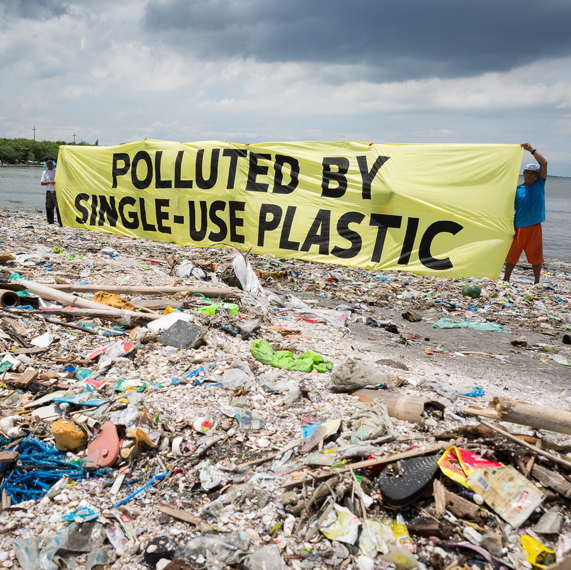
Why we need a UN Treaty on plastic pollution The Ellen MacArthur Foundation is a UK charity working on business, learning, insights & analysis, and communications to accelerate the transition towards the circular economy.
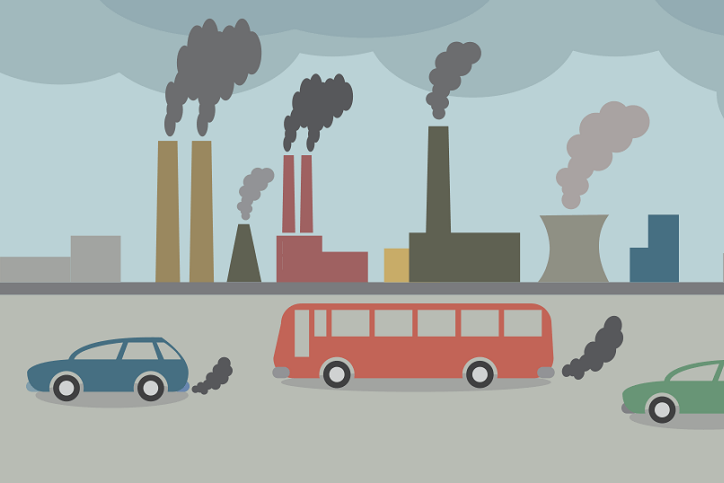
Air Pollution for Kids Air is all around us and we need it to survive.
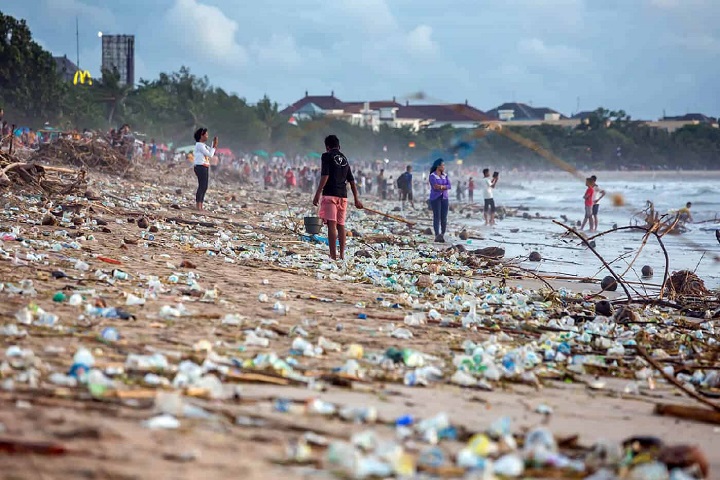
Why We Need to Stop Plastic Pollution? Our oceans are being filled and killed by throwaway plastics.
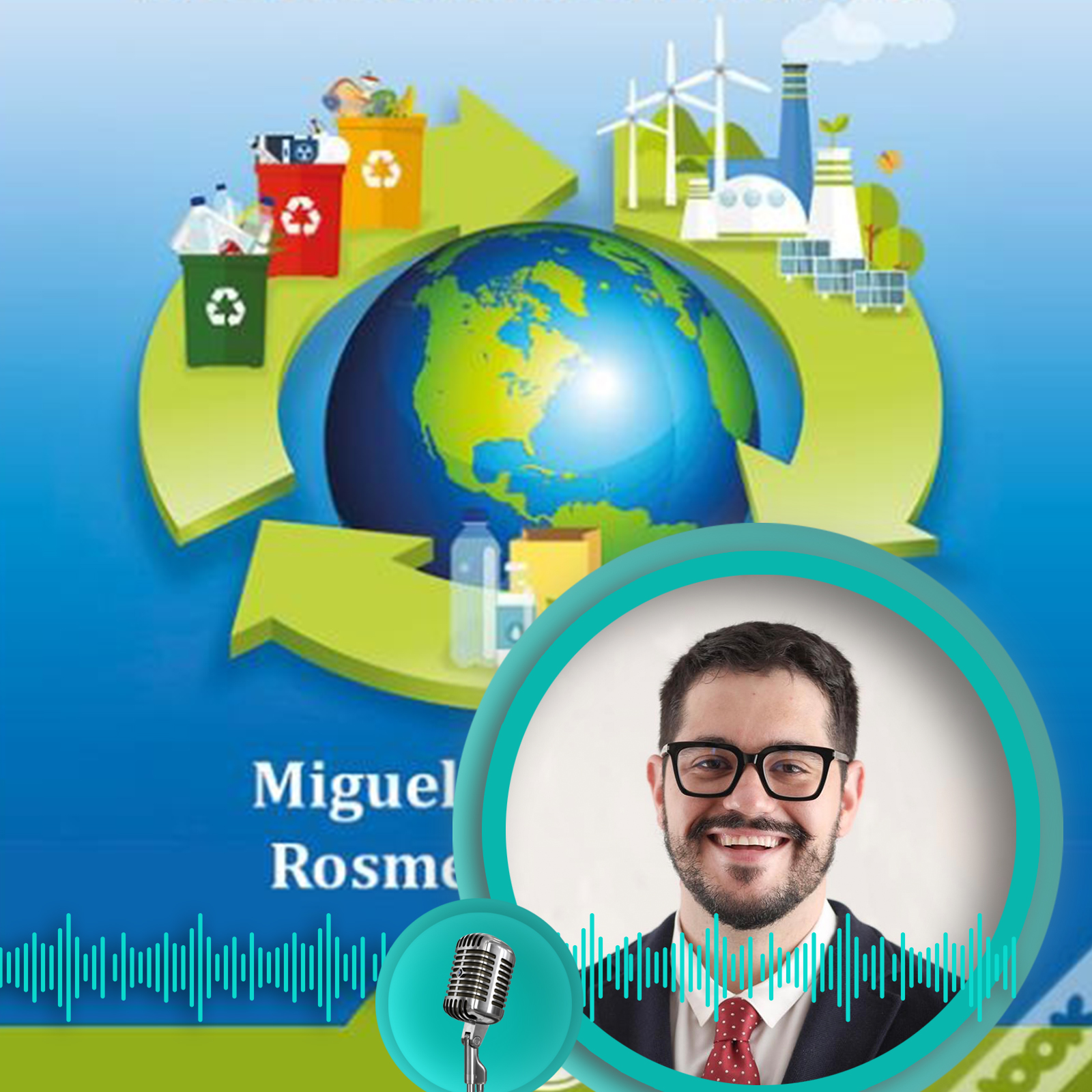
Climate Change, Ecological Crisis and Sustainability We are all agents for change in climate action.
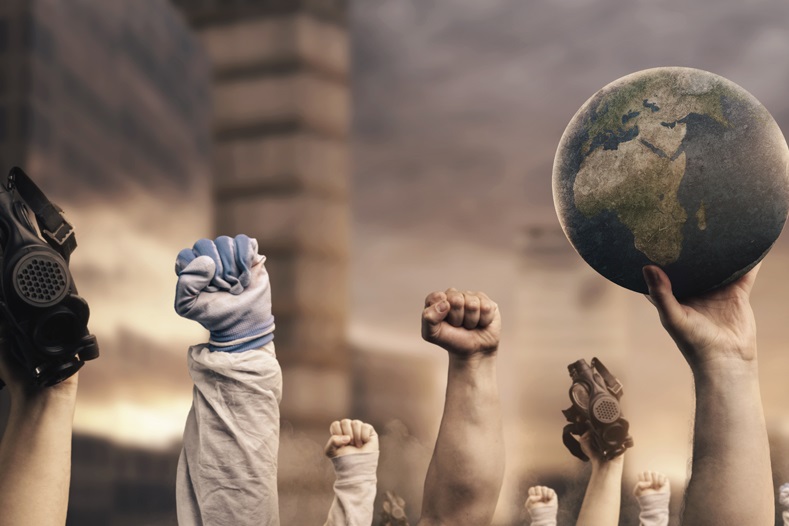
Climate Racism Climate Racism: Social Inequalities in the Age of Climate Change
Catherine
2024-11-30
...the Suffragettes didn't accomplish anything through Civil Disobedience...they had to go further; perhaps, so must we?
carlos Silva
2024-11-30
please help stop the destruction of our planet